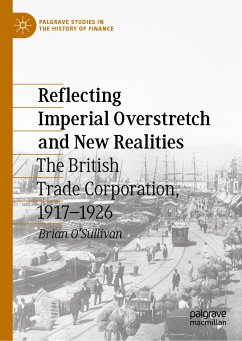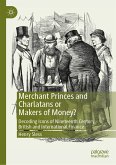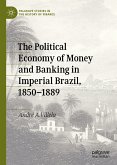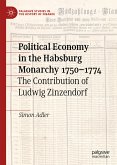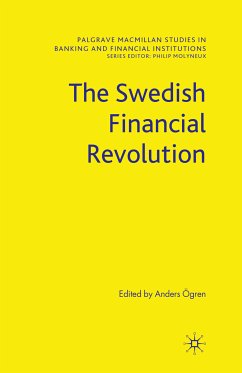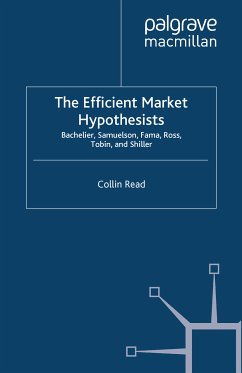- Frank Trentmann, Professor of History at Birkbeck, University of London.
This book is the first comprehensive history of the British Trade Corporation, which was constituted under a Royal Charter on 21st April 1917. Its charter was meant to last for sixty years, but in 1926, after a turbulent existence of only nine years, it was amalgamated with the Anglo-Austrian Bank, and absorbed into the Anglo-International Bank.
The corporation together with its two main subsidiaries, the Levant Company and the National Bank of Turkey, conducted business not only in Britain but in Russia, Turkey, the Middle East and in Continental Europe. Although the corporation was not an agent of empire, it reflected Britain's imperialistic ambitions after the First World War. As a result, it invested in some of the most unstable regions of the world. It was also severely affected by British foreign policy, which was often misjudged and, at times, duplicitous, resulting in serious damage to British trade. Within five years of its launch, the British Trade Corporation needed to be refinanced. The economic downturn in the early 1920s and ongoing hostilities in Eastern Europe and the Near East meant that it struggled to survive. Its difficulties reflected many of those faced by Britain in general after the war and the need to come to terms with the new realities of the post-war world.
Despite its innovative attempt to address the perceived deficiencies in Britain's financial system, especially in respect of industrial finance, the British Trade Corporation has been largely ignored by financial historians. Based on substantial archival research, this book rectifies this neglect and makes an important contribution to the financial history of interwar Britain.
Brian O'Sullivan is a Visiting Research Fellow at King's College, London. His book From Crisis to Crisis: The Transformation of Merchant Banking, 1914-1939 (Palgrave, 2018) was jointly awarded the BAC Wadsworth Prize in 2019. Brian has held senior roles in a number of financial institutions and is a Fellow of the Institute of Chartered Accountants and of the Royal Historical Society.
Dieser Download kann aus rechtlichen Gründen nur mit Rechnungsadresse in A, B, BG, CY, CZ, D, DK, EW, E, FIN, F, GR, HR, H, IRL, I, LT, L, LR, M, NL, PL, P, R, S, SLO, SK ausgeliefert werden.

